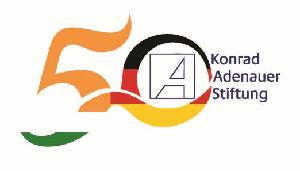Event Reports
Dr. Rosy Joseph, Director of Stella Maris College, and Aarti Santhanam, Head of the Department for International Studies at Stella Maris College, welcomed the workshop participants at Stella Maris College, emphasizing that peace can’t be defined as just an absence of conflict. They said that sustainable peace can only be achieved if a variety of conditions, such as justice, are fulfilled. Dr. Shailesh Nayak, Director of NIAS, emphasized in his speech that technical aspects to promote peace should also be considered in the deliberation about sustainable peace solutions. Philipp Huchel, Research Associate at the India Office of the Konrad-Adenauer-Stiftung, pointed to the fact that the world is facing an increase in conflicts, because of the increasing uncertainty due to global power shifts. Therefore, the search for sustainable peace solutions is more important than ever.
Prof. D. Suba Chandran, Dean of the School of Conflict and Security Studies at NIAS, first explained the structure of the lectures and contributions for the study to be published next year. The authors should first address their respective armed conflict that they are dealing within their presentation and peace processes the conflict issue and its affiliated challenges, the major actors and the experiences of the peace processes and problems that obstruct a peace solution.
The first discussion focused on to two conflicts within India. Dr. Ashok Bhan commented on the latest developments in the state of Jammu and Kashmir. Dr. Bibhu Prasad Routray focused on conflicts in northeastern India. Afterwards Dr. Sohan Sha in the second discussion round discussed the conflict, peace processes and the current developments in Nepal. Dr. N. Manoharan dealt in his presentation with the civil war in Sri Lanka and the various attempts to achieve peace. The third discussion also dealt with conflicts and peace efforts in South Asia. Prof. Chandran explained the existing conflicts within Pakistan, for example in Balochistan. Harini Madhusudhan and Gayan Gowramma, on the other hand, outlined the conflict that has been ongoing since 2001 as well as the many peace efforts in Afghanistan. The fourth round of discussion focused on conflicts and peace processes in the Middle East, Europe and Latin America. Lakshi V. Menon explained in her presentation the since 1947 ongoing Arab-Israeli conflict and its backgrounds. Dr. G. Subramaniam gave his presentation on the Northern Ireland conflict and the current implications of the Brexit. Divyabharathi E. spoke about the peace process and the referendum on the peace agreement with the FARC in Colombia, while Apoorva Sudhakar deliberated about the multiple conflicts in the Democratic Republic of the Congo. The fifth panel did not address any specific region, but instead dealt with global and regional frameworks and institutions that should provide peace. In her presentation, Dr. Mallika Joseph focused on the global level, focusing on the UN-created institutions and initiatives designed to create sustainable peace. Prof. Chandran addressed necessary regional conditions in South Asia to create a sustainable peace. He identified ten issues, like the aversion to legally binding treaties in favor of merely political agreements or the global interest in developments in the region, which obstruct a sustainable peace in the region. One of the ideas that he expressed that the nations should develop a common idea that brings nations together, like the ECSC in Europe in the aftermath of the Second World War. In the last discussion round Dr. Bibhu Prasad Routray discussed the manifold conflicts in Mayanmar, while Dr. M. Mayilvaganna presented his findings about the conflict in the south of Thailand. Samreen Wani focused on the ongoing Moro conflict in the Mindanao region on Philippines in her presentations. Stanly John focused in his discussion about the Israeli-Palestinian conflict on the origins of the conflict. Each presentation was commented by an expert. Among these experts was also Dr. Christian Wagner, Senior Fellow at the German Institute for International and Security Affairs.
The authors' workshop and the upcoming study is part of the newly launched International Peace Research Initiative (IPRI) by NIAS and KAS. The former annual publication "Armed Conflicts in South Asia", which was also supported by KAS, focused exclusively on South Asia, while the new study "Peace and Conflict: An International Primer" is globally oriented, but refers in particular to South Asia. As part of the new approach, the study will focus on one topic each year without losing the primary focus - providing an annual overview of conflict and peace.


























